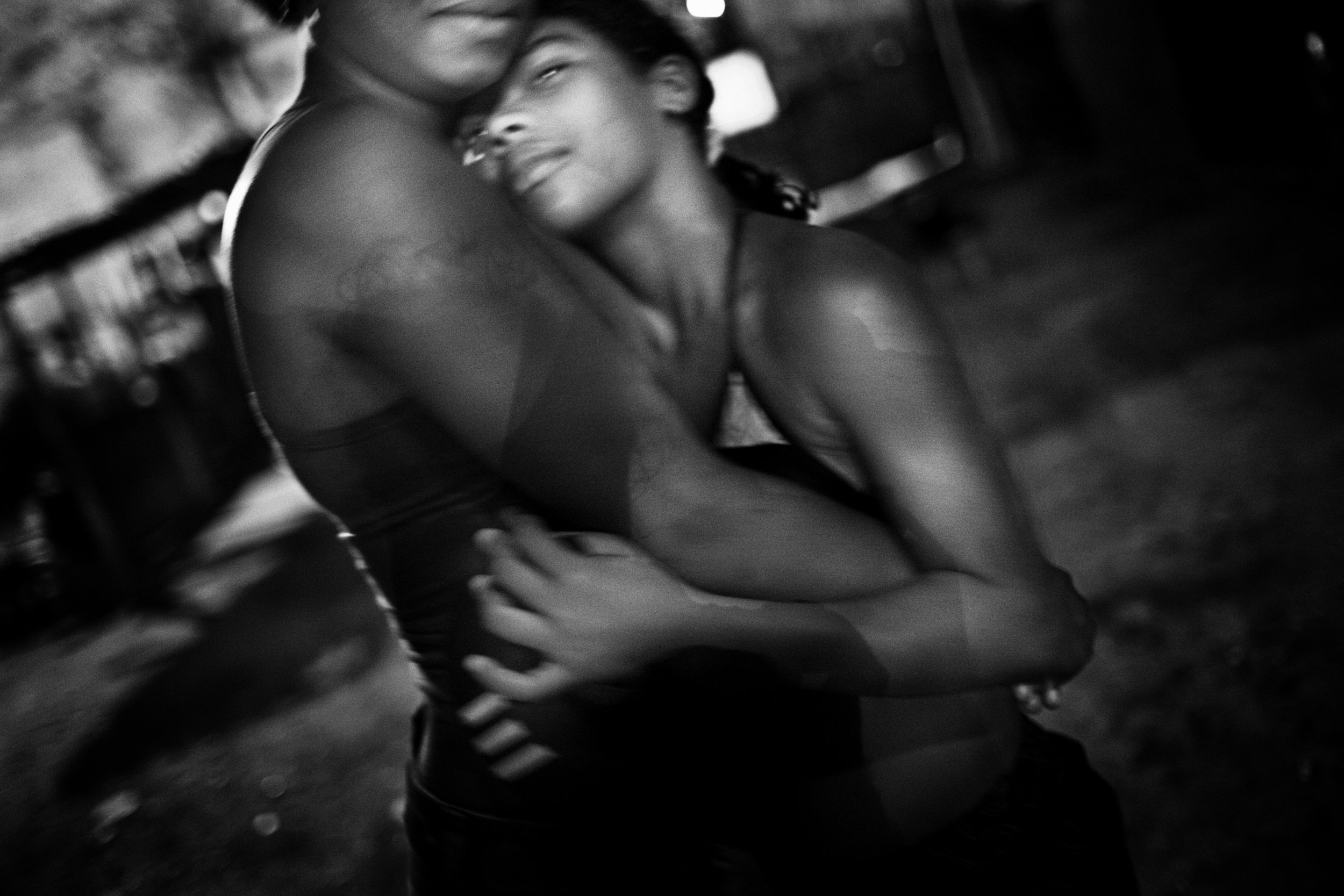Urban Quilombo
by Sebastian Liste
Brazil, Salvador de Bahia, March 2011, A boy jumping from a building of the abandoned chocolate factory.
This project is a testimony of a place that no longer exists. In 2003, dozens of families occupied the “Galpao da Araujo Barreto”, an abandoned chocolate factory in Salvador de Bahia, Brazil. Prior to establishing themselves in this place, these families lived throughout the dangerous streets of the city, but tired of living with so much violence and despair they came together to seize this deserted factory, which lay in ruins, and they transformed it into a home for themselves. Since 2009, I have been documenting the community of Barreto. From my studies in sociology, I understood that this was a unique community. This vast subculture within the greater city became one extended family. They created a microcosm in which the problems of drugs, prostitution and violence could be tackled with the support of the community.
Brazil, Salvador de Bahia, January 2011, Ana celebrating her sixth anniversary. She was born and has grown up inside the abandoned chocolate factory.
Brazil, Salvador de Bahia, December 2009, Selenia (12) dancing and playing with pieces of clothes from the garbage.
Barreto was a place where the exchange of ideas, goods and services created a bond of identity that allowed the survival of its members in a society that marginalizes them. Thus, community life is a form of struggle and resistance... Resistance to a society that considered them as a dysfunctional organ, excluding them from any kind of normal function that these citizens should have in a healthy society.
Three years ago I came to Barreto to explore how communities formed within fragmented societies as a mechanism of survival. Over the years, I have witnessed almost everything that one can experience: love, despair, betrayal, lust, passion, unity, friendship, empathy, conflict, forgiveness and a sense of family. But the most important thing that I witnessed there was the power of the community members to avoid disappearing into oblivion, to keep fighting despite the social marginalization of their members, and to build a community with the ultimate goal of worthy survival, building a home, raising a family, and continuing the fight against the powers that oppress them.
Love, despair, betrayal, lust, passion, unity, friendship, empathy, conflict, forgiveness and a sense of family
Brazil, Salvador de Bahia, January 2011, Zizinha (15) with her 6 months son. Few years ago she started to prostitute in the street and now she doesn't know who is the father. The levels of young prostitution are increasing every day in the community.
The strength and courage of the community of Barreto came from the creativity of its members in seeking new ways to subsist in abandoned industrial environments of the city. These actions that go against the established norms of society are much more than passing rebellious acts. They are planting the seeds of new cultures of resistance, creating new forms of societal relationships between human beings, and with their environment, in order to survive. They are creating new and different value systems, interpersonal relationships, and also new codes and rules within society itself.
Brazil, Salvador de Bahia, February 2011, Vanessa (13) reunited with her mum. Vanessa's mother abandoned her when she was six years old. Few years later Vanessa started to prostitute herself to survive.
After my first visit in 2009, I continued to return several more times until March 2011, when the government demolished the factory and evicted all these families, as one of many attempts to clean up the visible poverty in the center of Brazil’s cities. This was mainly due to the upcoming international events to be held in Brazil, including the 2014 FIFA World Cup and the 2016 Olympic Games. Brazil is teetering on the brink of violating human rights as it continues with the displacement of favelas in a reckless manner.
When the community of Barreto was forcibly relocated, there were around 130 families living there, in an area approximately the size of a football field. Although Barreto, the physical place, no longer exists, the community remains. The families that once lived in Barreto now live together in the Jardim das Margaridas, a marginalized neighborhood on the outskirts of the city. The government has moved the families from this community, together with another 500 families from different favelas around the city. This process of gentrification is becoming increasingly common around the world. It is an urban transformation that involves displacing a population with low income from a neighborhood of economic potential and interest, to transform it into a new, expensive and a fashionable place to live.
Brazil, Salvador de Bahia, March 2011, General vision of the countyard and the structure of the occupied chocolate factory.







